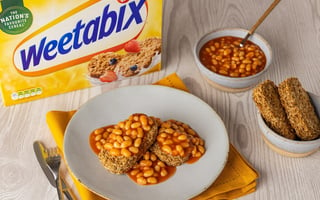Now, we could bring you our thoughts on the latest high-profile media interview.
The average radio interview is just over two and a half minutes long.
Yet, as we stress during our media training courses, its power should not be underestimated.
A good radio interview has the power to compel like nothing else – as one we just heard has highlighted.
It was on Radio 5 Live on Sunday when Mark Elliott, from Help for Heroes, was interviewed by Eleanor Oldroyd about Remembrance Sunday.
And it was packed with emotion and personal storytelling (you can hear it here from about 2:06).
“Remembrance can be a tough time,” he said.
“It is bringing back memories of service, of lost ones and the sacrifice young men and women have given to this nation.”
A strong, thought-provoking start.
And it was when he was asked whether people had become better at talking about the trauma they had experienced that the personal storytelling, which is so powerful in media interviews, started to come through.
He said: “I always remember years ago something came up on the news when my mother was alive, and I said something, and she said to me, ‘Well, you never told me that’.
“And I remember saying, ‘Why would I? Why would I talk about the smell of death or a bomb going off in Northern Ireland?’ Why would I do that? I don’t want to hurt you’.
“And that’s the barrier for many veterans and indeed their families. They hold on tight because they don’t want to hurt you,”
Stories lie at the heart of human connection. They are memorable and engaging. And they cut through the noise.
You can almost picture that conversation he had with his mother while understanding his reluctance to talk about what he had seen.
The most moving answer, however, came in response to the final questions, where he was asked how he would mark Remembrance Sunday.
“Believe it or not, I will be going to ride my bike out in quiet country lanes,” he said.
“I will be riding my bike on my own, but with many friends who are no longer here.
“I will chat to them. And I will talk about the times and the laughs we had when we perhaps drank too much in the NAAFI or we did something on exercise. And say, ‘Mate, thank you. I’m still trying to do everything I can – along with my colleagues and thousands of others – to look after our mates that made it home, so I can do something positive with your sacrifice. I will never forget you. But I will look after your families and friends that made it home’.
“That’s the commitment I made. And that’s the commitment I think our nation should make.”
Incredible emotional storytelling.
We can picture Mark with his friends on the bike. And we picture them together in the NAAFI.
It is vivid and almost jumps out of the radio.
As we stress during our media training courses, most people are doing something else while they listen to the radio.
But this is interview content that demands attention and makes people take notice.
Of course, most spokespeople will not have stories as poignant as this.
But they can still learn from Mr Elliott’s willingness to share stories.
‘People love stories about other people’ is a phrase you are likely to hear during one of our media training courses.
They tap into our natural curiosity about the lives of others. Policies, protocols and strategies do not have the same impact.
Here are some tips from our media training courses about using examples and telling stories:
Journey
We sometimes find during the mock interviews on our media training courses, that spokespeople rush through stories and examples. There’s no need. Spokespeople shouldn’t be afraid to spend time telling stories in their interviews. Tell the story and take the audience on a journey.
Keep it simple
Spokespeople should work with their comms teams to ensure stories are told in a media-friendly way to maximise impact. The key is to tell stories with powerful, simple language, which stirs up emotions in the audience. And they should be simple to follow – you don’t need complicated plot twists.
Get personal
The most engaging stories are typically those that are personal to the spokesperson.
It may sound a little daunting, but during our media training courses, we notice those who choose to bring their personal examples and anecdotes into an interview are the ones who we see grow in confidence the most.
Prepare
As ever with media interviews, success often comes down to preparation. Planning the examples and stories you intend to use in a media interview is an integral part of media interview preparation.
Media First are media and communications training specialists with over 35 years of experience. We have a team of trainers, each with decades of experience working as journalists, presenters, communications coaches and media trainers.
Click here to find out more about our media training.
Subscribe here to be among the first to receive our blogs.




